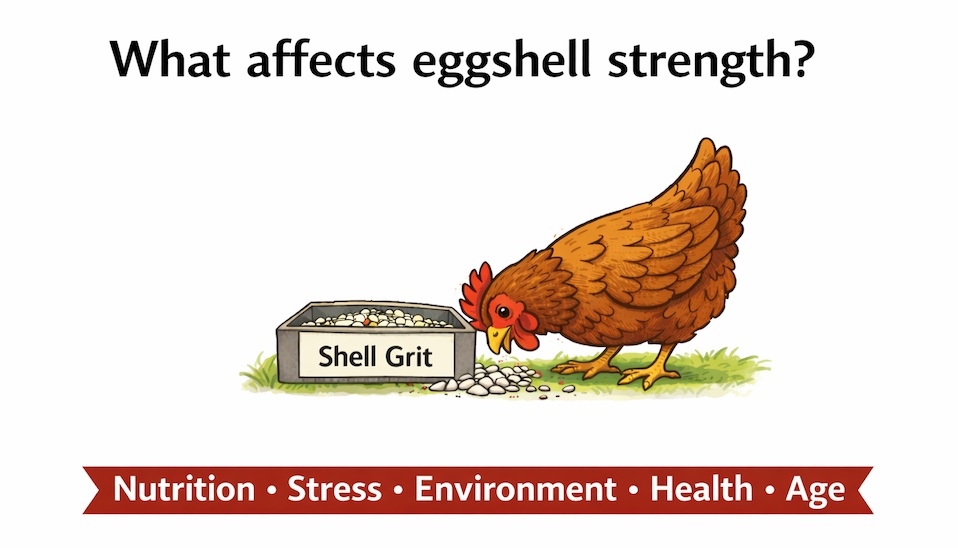Fluverm vs. Kilverm: Which Chicken Wormer is Right for Your Flock?
Choosing the right worming product for your backyard chickens can be challenging, especially with so many options available. Two of the most popular choices among poultry keepers are Vetsense Fluverm and Kilverm Liquid. While both products are effective wormers, they differ in key areas that can impact your flock’s health. In this post, we’ll compare Fluverm and Kilverm to help you make the best decision for your chickens.
Why Worming Your Chickens is Important
Worms can severely impact your chickens' health, reducing their egg production, causing weight loss, and even leading to respiratory issues. Regular worming is essential to maintain a healthy flock, especially in backyard environments where chickens may encounter contaminated soil or wild birds.
Understanding Chicken Worming Needs
Chickens are susceptible to various internal parasites, including:
- Roundworm - Affects digestion and weight.
- Caecal Worm - Can cause diarrhea and anemia.
- Gapeworm - Leads to breathing difficulties and can be life-threatening.
- Tapeworm - Interferes with nutrient absorption.
It’s crucial to choose a wormer that effectively targets the parasites most likely to affect your flock.
Fluverm vs. Kilverm - The Key Differences
1. Worm Coverage
Fluverm: Controls Roundworm, Gapeworm, and Tapeworm.
Kilverm: Controls Roundworm and Caecal Worm, but not Gapeworm.
Why It Matters: Gapeworm can cause severe respiratory distress, especially in younger chickens. Fluverm’s ability to treat gapeworm makes it the superior choice for comprehensive parasite control.
2. Egg Safety
Fluverm: Zero withholding period - Safe for egg-laying hens.
Kilverm: Zero withholding period - Also safe for egg-laying hens.
Why It Matters: Backyard chicken keepers often rely on daily egg production. Both products are safe to use without interrupting egg consumption.
3. Ease of Use
Fluverm: Powder form - Easily mixes with feed, ensuring even distribution.
Kilverm: Liquid form - Must be mixed with water and can be challenging to dose consistently.
Why It Matters: Mixing a powder with feed is often more manageable for backyard setups, and chickens are more likely to consume the correct dosage.
4. Gapeworm Treatment
Fluverm: Yes - Effective against gapeworm.
Kilverm: No - Does not treat gapeworm.
Why It Matters: If gapeworm is a known problem in your area or flock, Fluverm is the clear choice.
5. Availability
Fluverm: Available at Dine-A-Chook.
Kilverm: Also available at Dine-A-Chook.
Why We Don’t Recommend Avitrol Tablets
You may have come across Avitrol Bird Wormer Tablets as another option. However, it is important to note that Avitrol is not recommended for backyard chickens as it is not approved for use with egg or meat-producing birds. At Dine-A-Chook, we do not stock Avitrol for this reason.
How to Choose the Right Wormer for Your Flock
- Do your chickens have respiratory symptoms? - Choose Fluverm for gapeworm treatment.
- Are you looking for ease of administration? - Fluverm’s powder form is often easier to mix with feed compared to Kilverm’s liquid.
- Are your chickens primarily egg-layers? - Both are safe, but Fluverm offers more comprehensive parasite control.
Final Thoughts
Choosing the right chicken wormer doesn’t have to be complicated. If your primary concern is gapeworm, or if you prefer a feed-based treatment, Fluverm is the superior choice. For general worming without gapeworm concerns, Kilverm can also be effective.
At Dine-A-Chook, we recommend Fluverm for its comprehensive worm coverage and ease of use. Keeping your flock worm-free ensures healthy chickens and consistent egg production.
Ready to give your chickens the best worming protection? Check out Vetsense Fluverm Chicken Wormer today at Dine-A-Chook!



